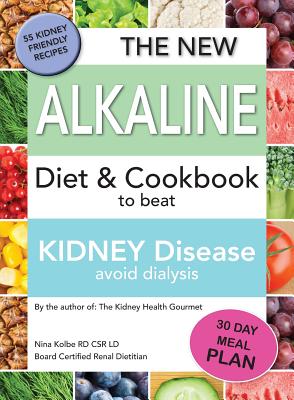
description
st effective way of slowing or stopping the progression of chronic kidney disease. An alkaline diet uses a PRAL SCORE ( potential renal acid load) of food to create an alkaline environment in the body. This reserach was presented at the National Kidney Foundation meetings:
The potential renal acid load or PRAL model, developed by German scientists in the 1990s, measures the effect of common foods on urine acidity or pH value. According to a June 2008 article in the "British Journal of Nutrition," the higher the PRAL score of a food, the more likely it is to promote an acidic environment in your body.
The PRAL score is directly associated with urine acidity or urine pH value. The higher the value, the more acid-producing the food.
An acidic environment has been shown is numerous reserch studies to hasten the progression of chronic kidney disease, gout, kidney stones, inbalance is the GUT, and general inflammation in the body.
The potential renal acid load or PRAL model, developed by German scientists in the 1990s, measures the effect of common foods on urine acidity or pH value. According to a June 2008 article in the "British Journal of Nutrition," the higher the PRAL score of a food, the more likely it is to promote an acidic environment in your body.
The PRAL score is directly associated with urine acidity or urine pH value. The higher the value, the more acid-producing the food.
An acidic environment has been shown is numerous reserch studies to hasten the progression of chronic kidney disease, gout, kidney stones, inbalance is the GUT, and general inflammation in the body.
Nina Kolbe RD CSR LD is a board certified renal dietitian, with over 20 year's experience in the field of nutrition and chronic kidney disease with a private practice devoted to treating patients with all stages of chronic kidney disease. I have seen first hand how diet and lifestyle managment can alter the course of chronic kidney disease.
member goods
No member items were found under this heading.
Return Policy
All sales are final
Shipping
No special shipping considerations available.
Shipping fees determined at checkout.







